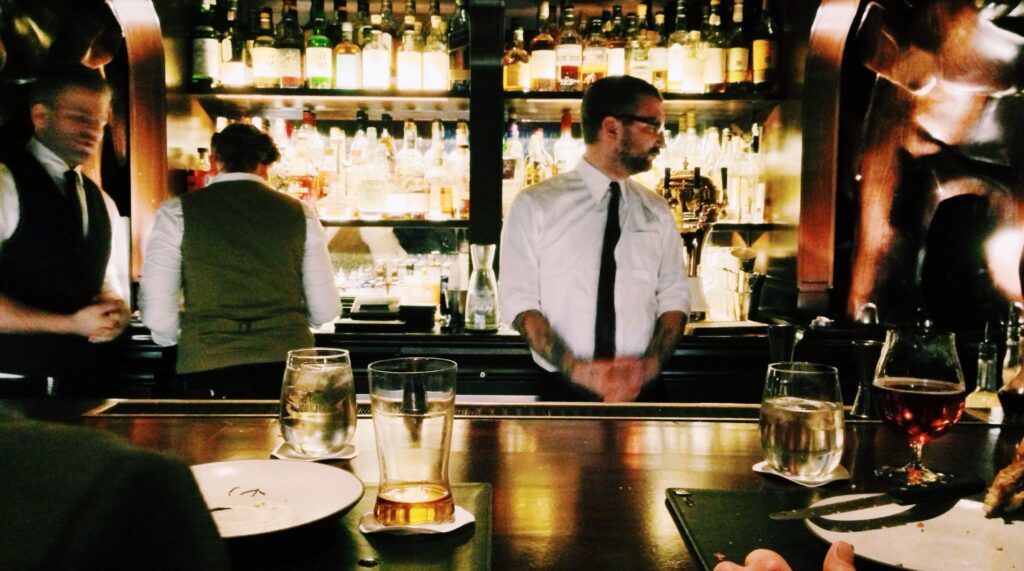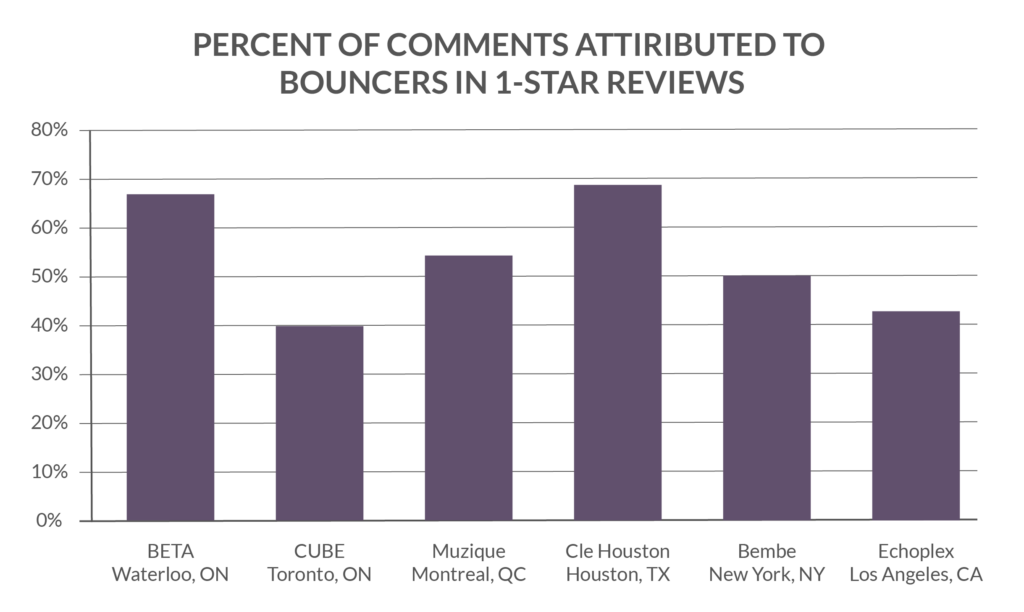First impressions matter. People form their first impressions within the first few minutes of an interaction, and that impression is difficult to change.
At a bar or nightclub, this important first impression lies in the hands of the bouncers and security staff. They are a customer’s first point of contact, so it’s no surprise that many customers form a first impression of a nightclub based on their interaction with security.
Your bouncers and other security team members already complete training for controlling violence and handling intoxicated customers, but it may be time to add hospitality training into the mix. Such training would cover topics such as effective communication, interpersonal skills, and maintaining a positive environment for customers. Consider the following reasons for introducing hospitality training at your bar or nightclub.
1. Encourage customers to return
One of the main reasons for hiring security staff is to ensure the safety of your guests — but that’s not the only role these team members fulfill. Staff such as bouncers also contribute to the overall tone and personality of your bar or nightclub.
When your security staff fails to provide a positive experience, your customers may not want to return. Even if your staff did a great job providing a secure environment, the negativity can be enough to discourage first-time customers from becoming recurring customers.
The solution isn’t to train your staff to soften up. Any bar owner knows that bouncers need to be stern and firm to prevent disruptions and fights. Bouncers also face a significant amount of violence. If they don’t strictly enforce the rules, this violence can get out of control and harm the guests.
Hospitality training can help your security staff learn how to strike a balance between being friendly and being stern. Such training can also prepare your staff for handling sensitive issues. One online reviewer complained that a bouncer mistreated her developmentally disabled brother after misjudging the cause of his behavior. Hospitality training could equip your team to handle tough situations such as these.
By requiring your team to undergo both basic security training and hospitality training, you can give your security staff the resources they need to provide the type of environment customers are looking for in a nightclub: one that’s both fun and safe.
2. Minimize 1-star reviews
Online reviews are crucial for most businesses, and this fact is particularly true for bars and nightclubs. Along with giving future customers an idea of what to expect, online reviews are becoming more important for SEO, which affects how many visitors your nightclub receives.
A quick look at 1-star Yelp reviews for bars and clubs across Canada and the US shows a staggering trend. Approximately 40% to 69% of these 1-star reviews included a reference to unsatisfactory or unwelcoming encounters with bouncers.
Of these 1-star reviews, many customers express that they’d be unlikely to become a return customer. The kinds of bouncer behavior described include seemingly unnecessary bag/purse/body checks, rude interactions after waiting in long lines, and having to bribe bouncers despite purchasing tickets in advance.
“The service there is horrible. The bouncers and staff are extremely rude, and after waiting over an hour to get into the place, the last thing you want to do is be greeted by some grumpy bouncer.” — 1-star review for a music venue in Calgary, AB
“I lost a lot of respect for this place and do not recommend this place to anyone looking for a night out! The bouncers have no respect. Well, it was technically one bouncer, but it’s a representation of the company.” — 1-star review for a dance club in Toronto, ON
“The atmosphere of this place deserves 3 stars because it’s a great looking venue inside and the Friday night DJ was pretty fun. Alas, I dropped off a star due to the rudeness of the door staff.” — 2-star review for a dance club in Toronto, ON
“I personally feel when a door man abuses its “power” and acts rude and disrespectful, that is where I draw the line.” — 1-star review for a nightclub in Texas
As a bar or nightclub owner, you have so many factors to consider for building a successful business. Even if your environment is great, your drinks are delicious, and your music is entertaining, a poorly trained security staff can leave an extremely unpleasant impression.
What’s worse: Those bad impressions can translate to negative online reviews, discouraging new customers from visiting your business at all.
3. Foster employee development
Along with encouraging customers to return and minimizing online reviews, providing hospitality training can have profound effects on the professional skills of your security staff.
A tactic used in some bars across the US, Australia, and Britain is hiring smaller, less threatening, and/or female bouncers. The idea is that these bouncers may be better at defusing tense situations. But, with proper training, your current security staff can learn the skills they need to defuse situations and provide a great customer experience.
M. Vijay, a bouncer at a pub in India, explains that bouncers today need personality traits apart from just menacing looks and intimidating personalities. Vijay says, “A good bouncer needs to have excellent communication skills, tact, and interpersonal skills.
”Rather than letting go of your current team members and hiring bouncers who may be physically less intimidating, you can provide hospitality training and help your staff further their skills. The training you provide now can reap immediate benefits for your business as well as boost the long-term success of your valued team members.
Hospitality training for a more successful nightclub
Three main factors any business owner is always evaluating include providing a great customer experience, developing powerful online presence, and keeping employee morale high.
Including hospitality training as part of your security staff’s job preparation can address each of these factors for your business, leading you to have happier customers and happier employees both short-term and long-term.



